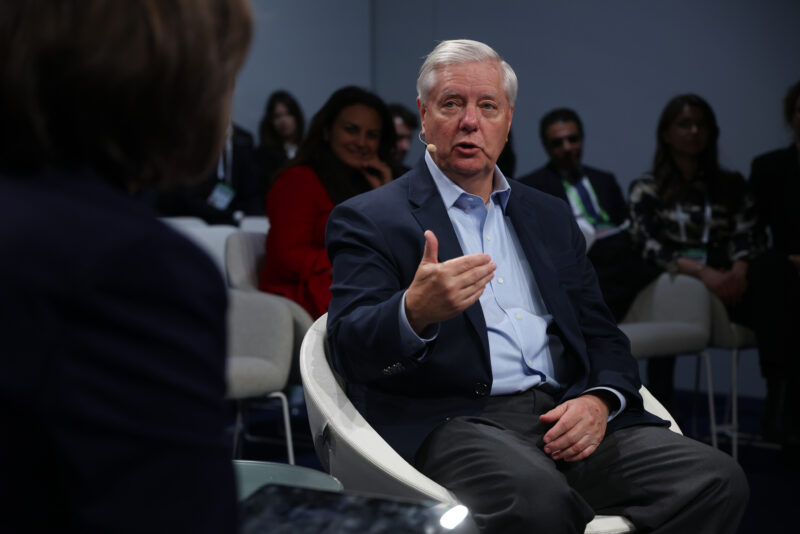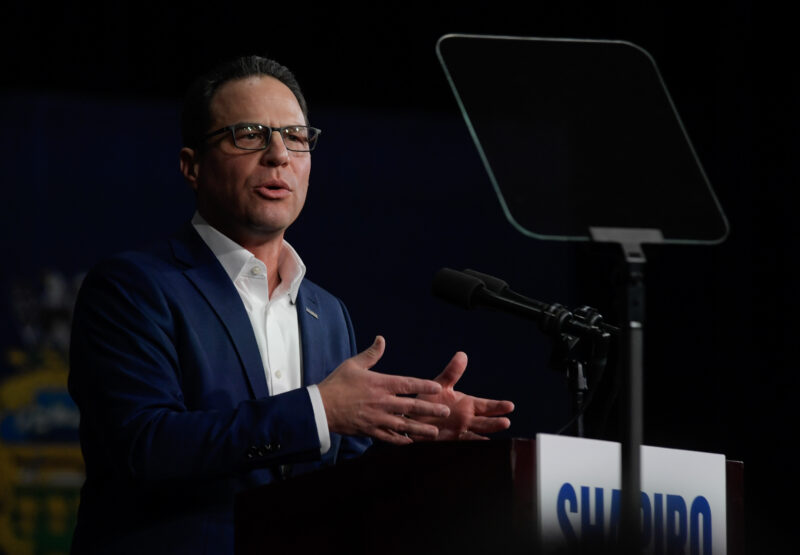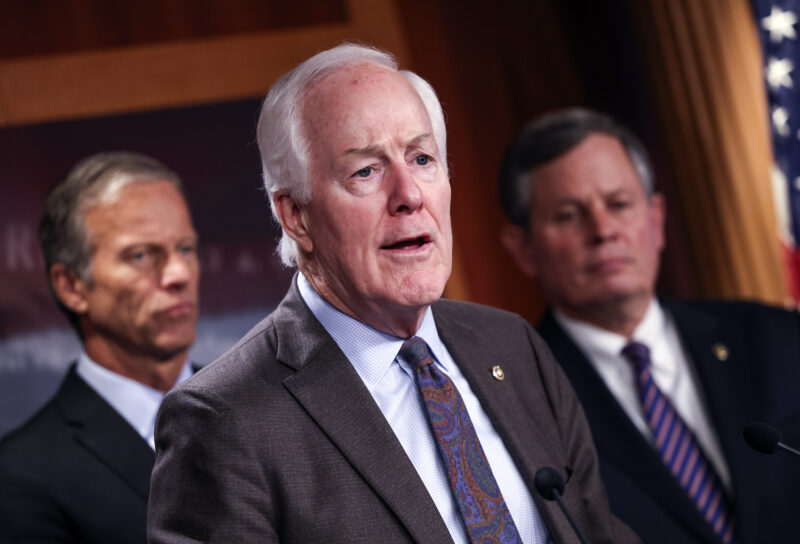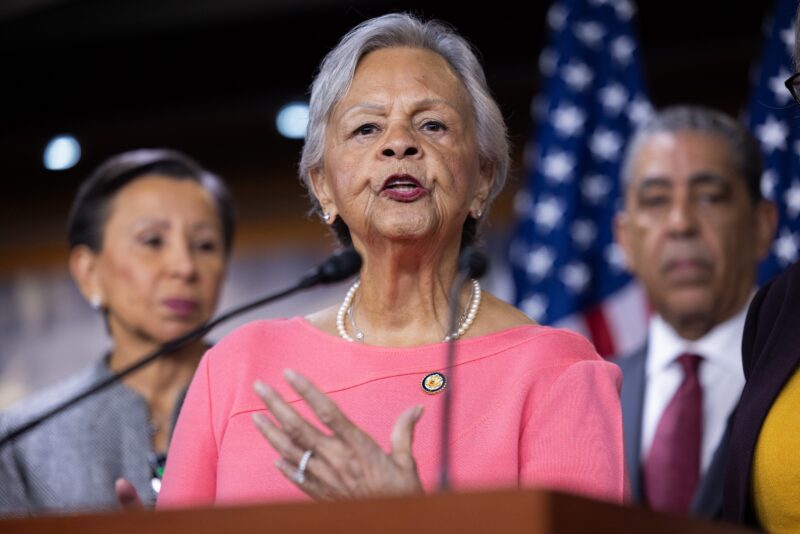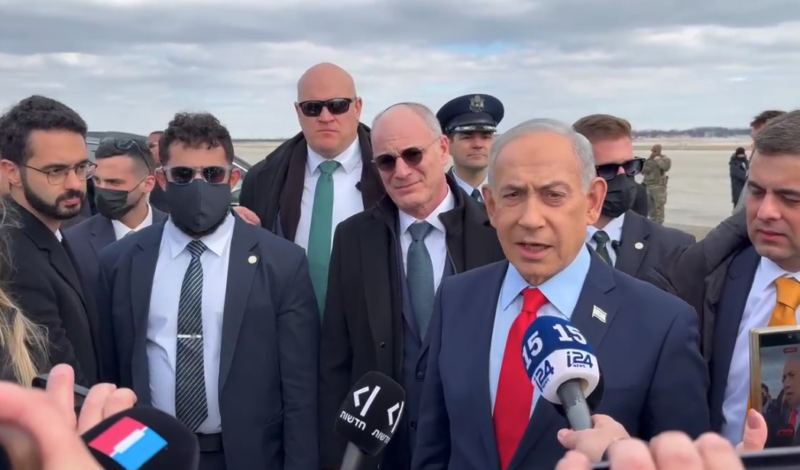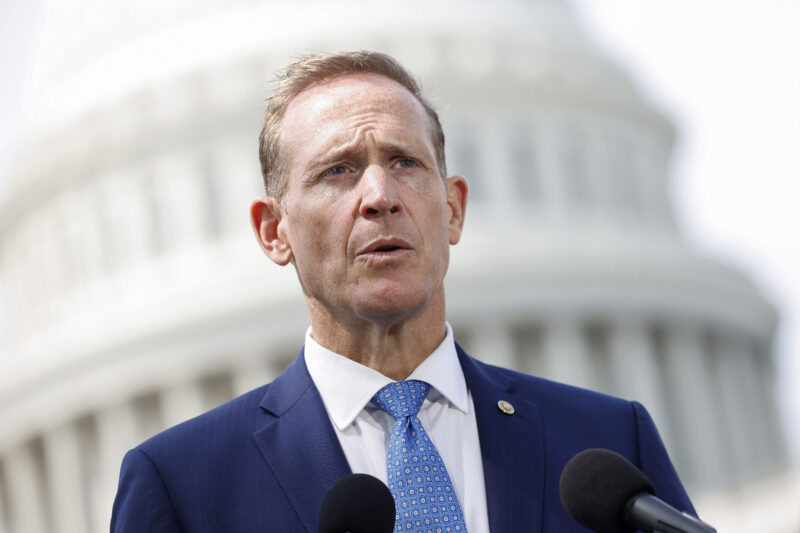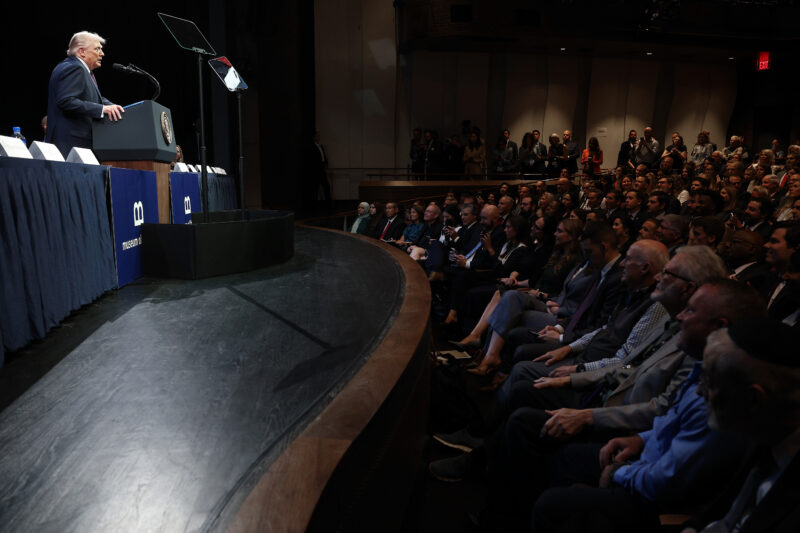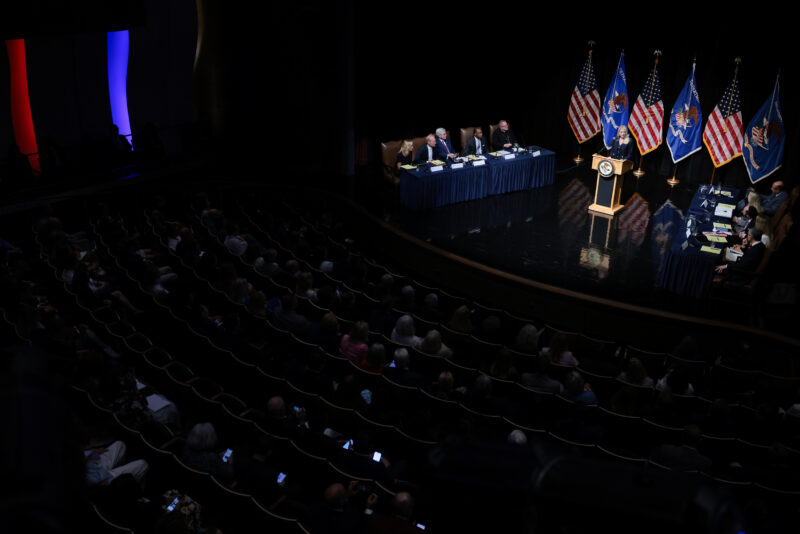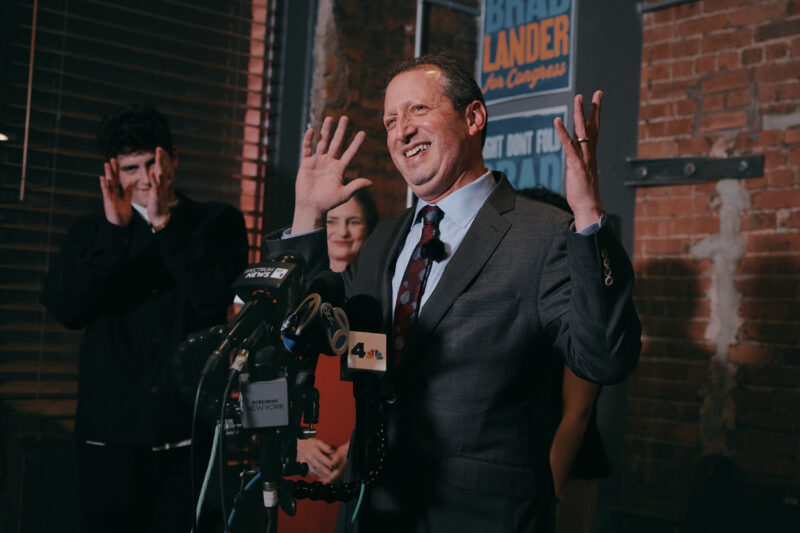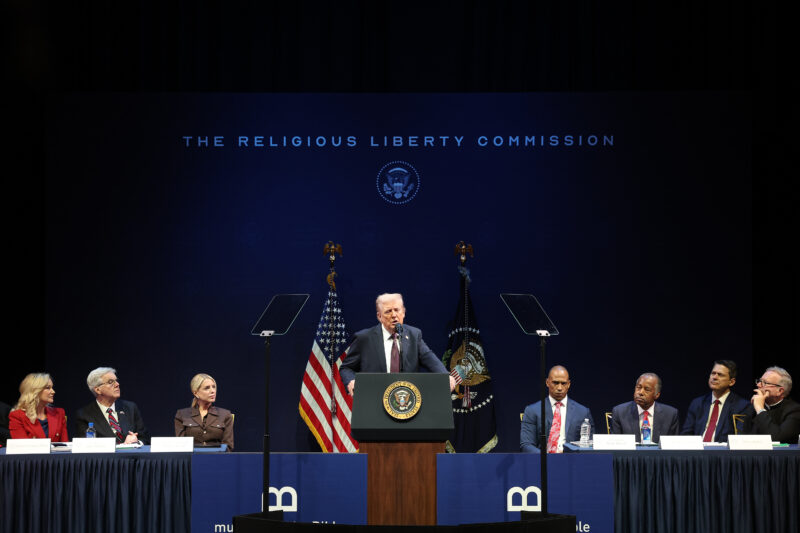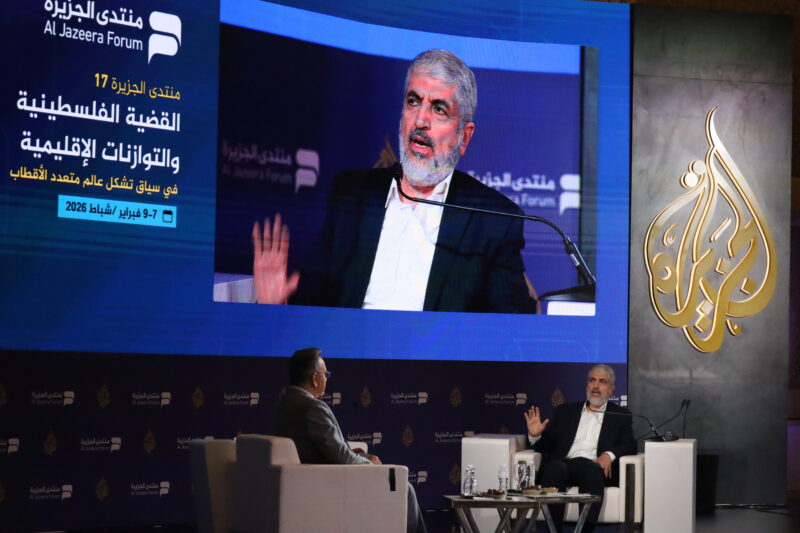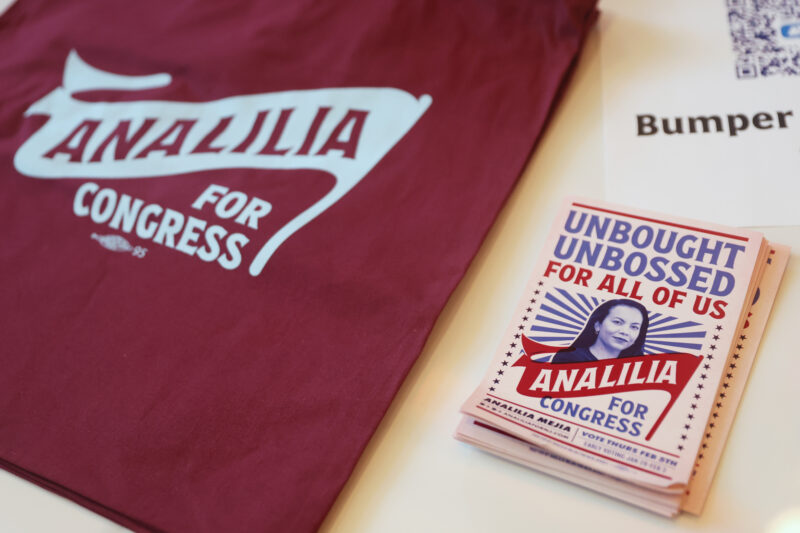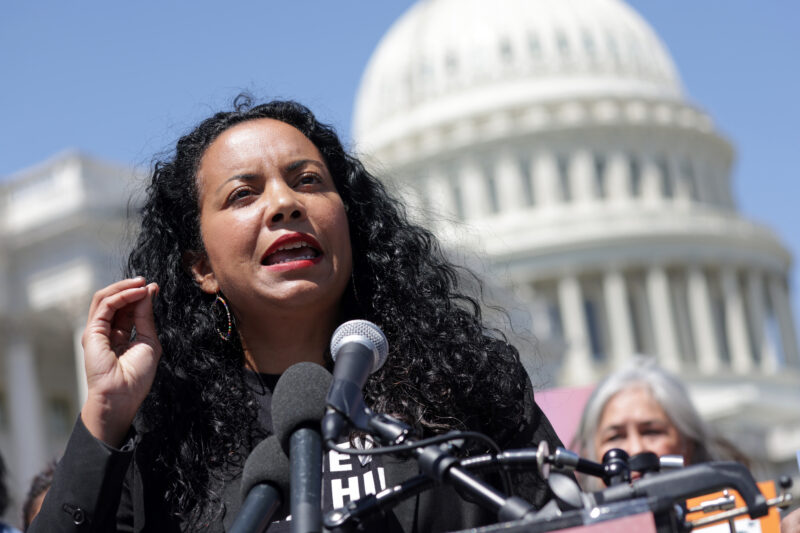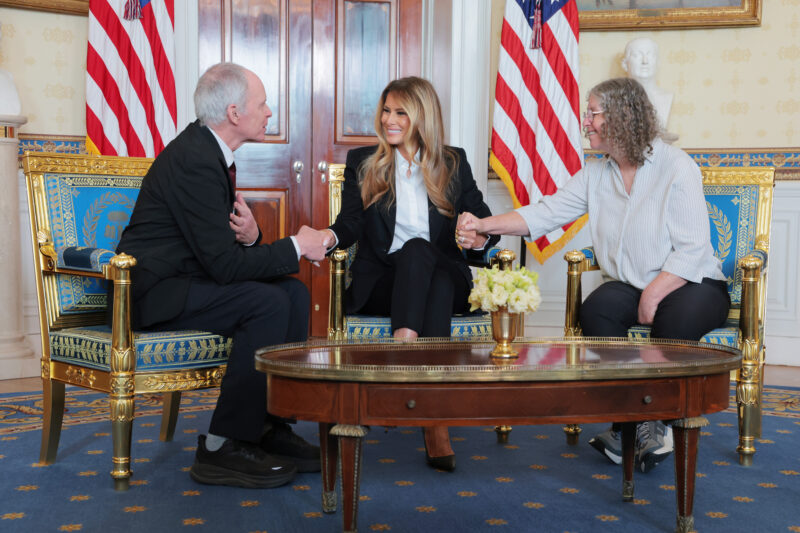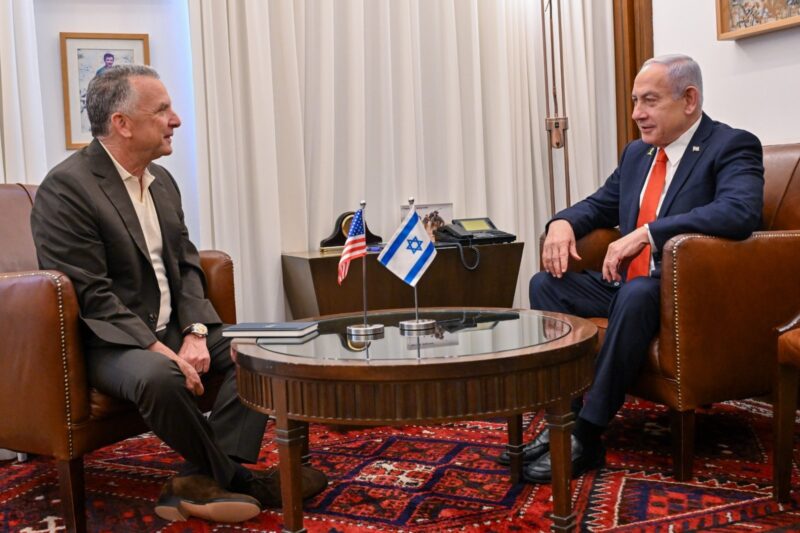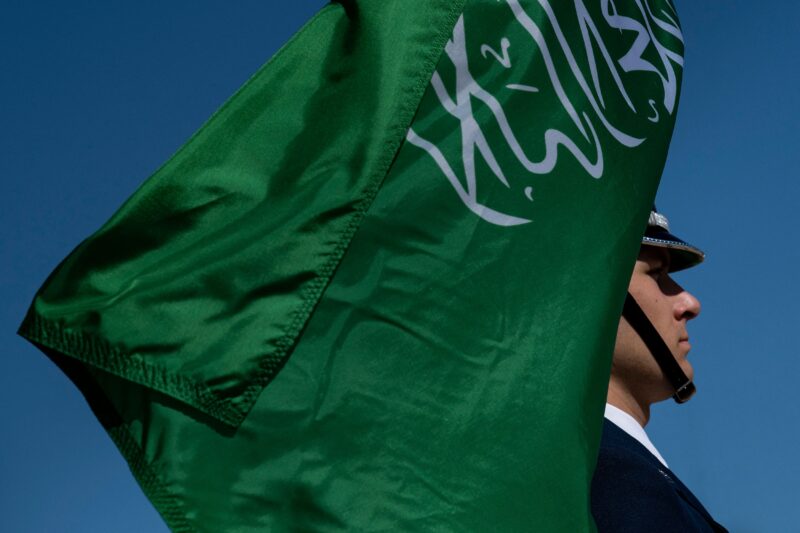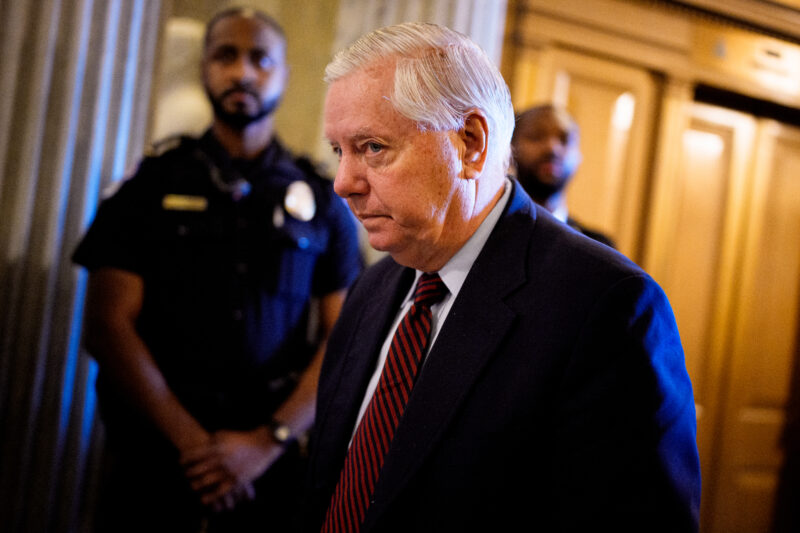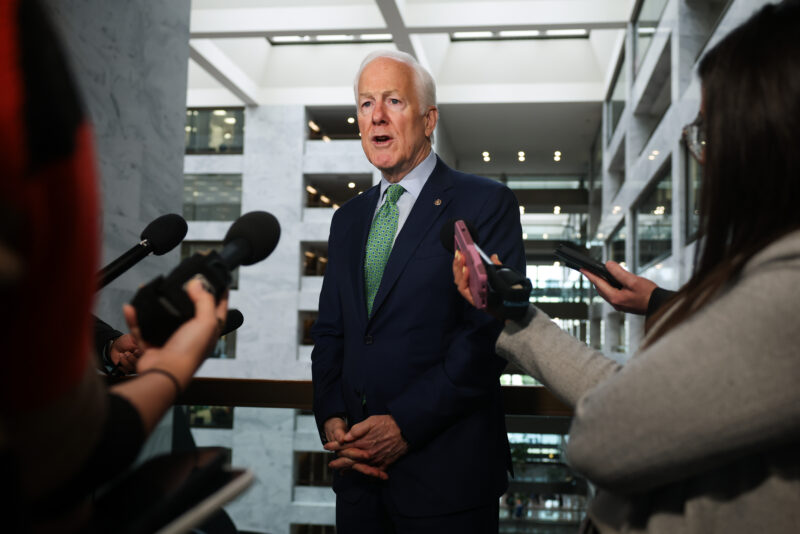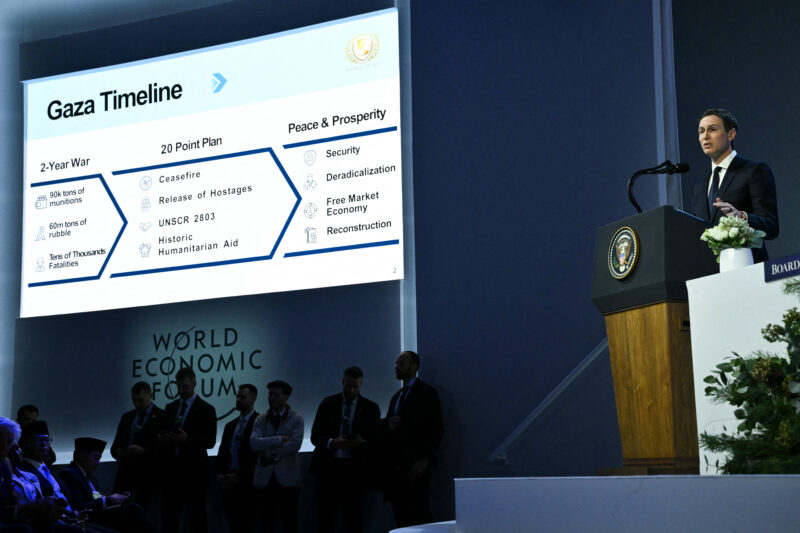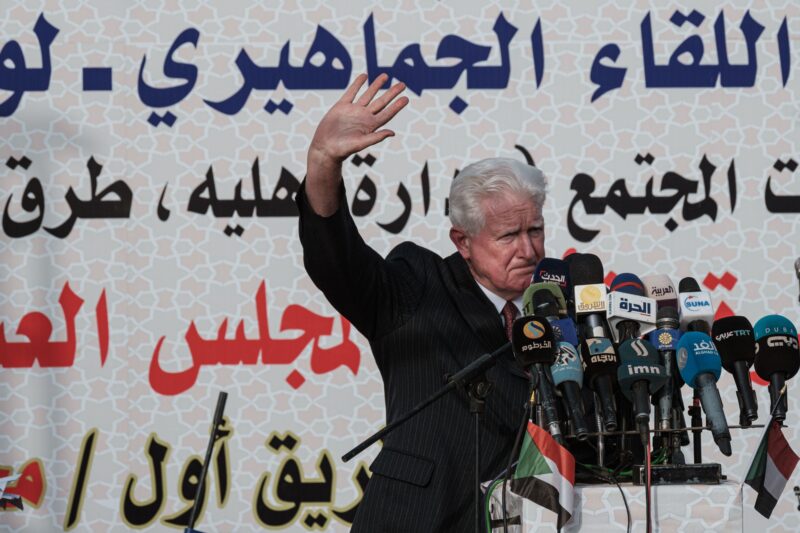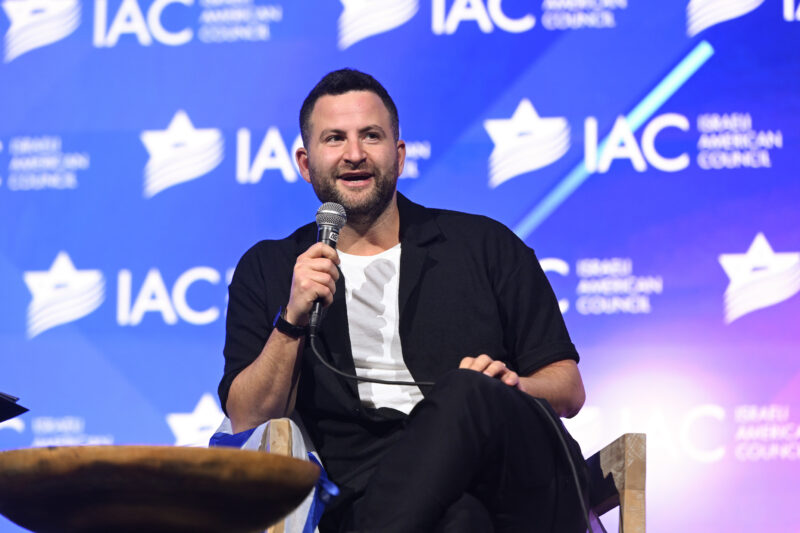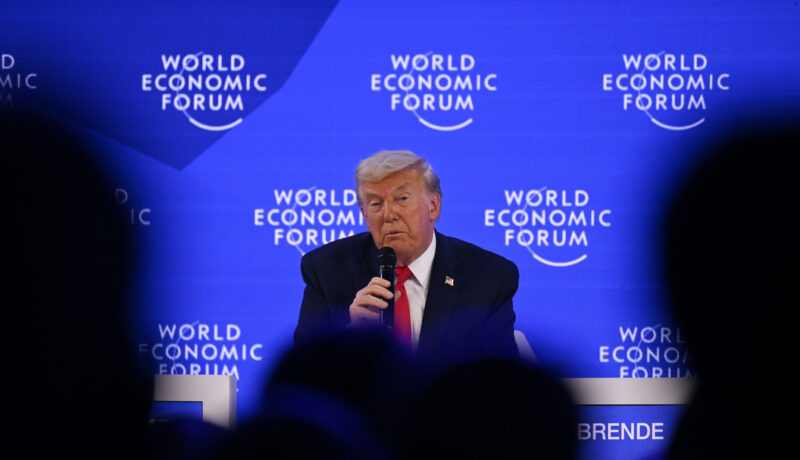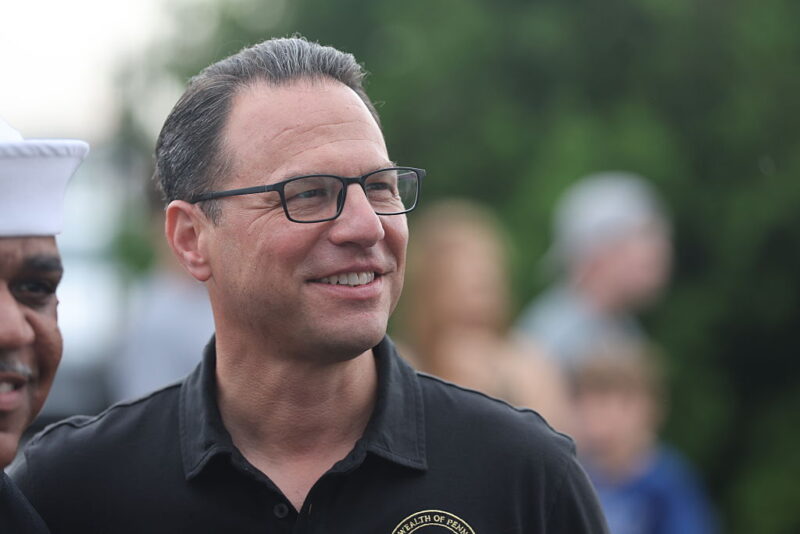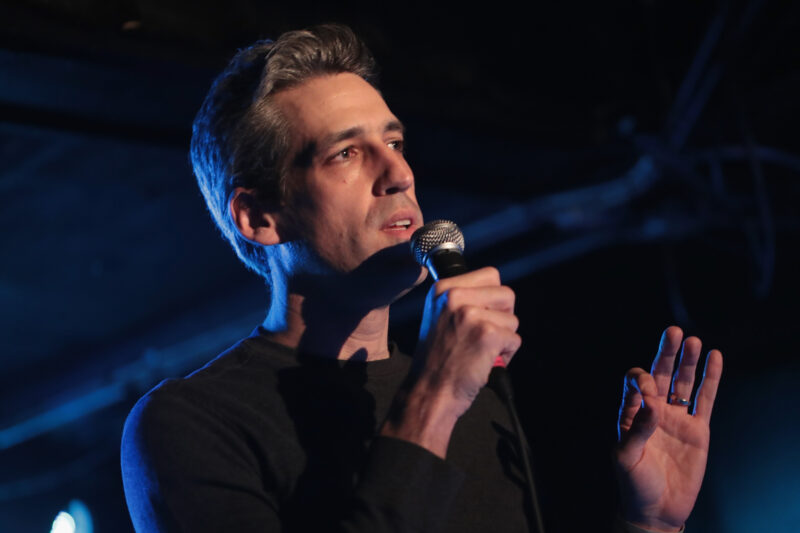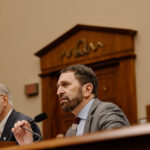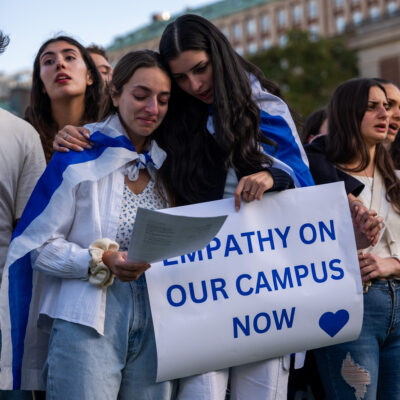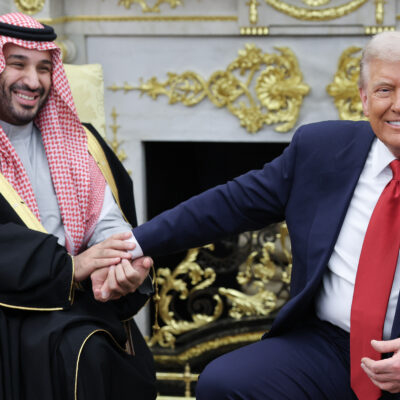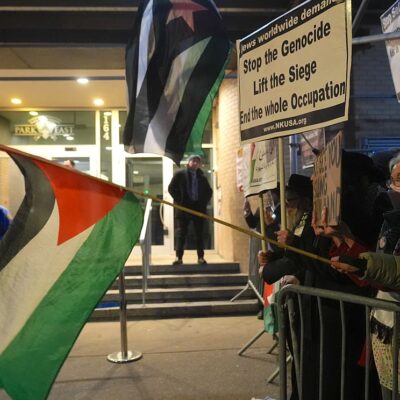State Department, Pentagon threaten military aid to Israel over Gaza
Secretary of State Tony Blinken and Secretary of Defense Lloyd Austin demand Israel address the worsening humanitarian conditions in Gaza

Kent Nishimura/Getty Images
Israeli Prime Minister Benjamin Netanyahu addresses a joint meeting of Congress in the chamber of the House of Representatives at the U.S. Capitol on July 24, 2024 in Washington, DC.
Israeli Prime Minister Benjamin Netanyahu faced intensifying pressure on two fronts on Tuesday, clashing with French President Emmanuel Macron over the war in Lebanon as the Biden administration threatened to cut weapons shipments if Israel doesn’t supply additional humanitarian aid to Gaza.
Secretary of State Tony Blinken and Secretary of Defense Lloyd Austin wrote a letter Monday to Israeli Defense Minister Yoav Gallant and Strategic Affairs Minister Ron Dermer demanding Israel address the worsening humanitarian conditions in Gaza by expediting the delivery of aid — or face the possibility of losing military assistance.
“We are now writing to underscore the U.S. government’s deep concern over the deteriorating humanitarian situation in Gaza, and seek urgent and sustained actions by your government this month to reverse this trajectory,” Blinken and Austin wrote in the letter, dated Oct. 13, in which they noted that September was the month in which less humanitarian aid reached Gaza than any other in the past year.
Within 30 days, they wrote, Israel must “surge all forms of humanitarian assistance throughout Gaza” by allowing 350 trucks in a day, instituting humanitarian pauses in fighting and other measures.
The letter added: “Failure to demonstrate a sustained commitment to implementing and maintaining these measures may have implications for U.S. policy under NSM-20 and relevant U.S. law (weapons supply).”
They also demanded that Israel “end isolation of northern Gaza,” a key component of the IDF’s counterterrorism raids in recent weeks, and that the prime minister block legislation in the Knesset meant to revoke special privileges for the staff of UNRWA, the U.N. agency for Palestinian refugees and their descendants, in light of revelations of UNRWA employees taking part in the Oct. 7 terrorist attacks.
Netanyahu’s and Gallant’s offices declined to comment other than to confirm the authenticity of the leaked letter.
Meanwhile, Macron pressed Netanyahu for a cease-fire in Lebanon, which the Israeli prime minister made clear was untenable — and that a return to previous unenforced international arrangements would not suffice.
The Netanyahu-Macron phone call took place a day after France, the U.K., Italy and Germany released a statement condemning Israeli strikes in Lebanon hitting UNIFIL, U.N. peacekeeping troops in Lebanon, while Netanyahu has pointed out that Hezbollah attacks Israel from UNIFIL bases.
Netanyahu told Macron that he opposes a “unilateral cease-fire, which would not change the security situation in Lebanon and would return the country to its previous state.”
“Israel is operating against the Hezbollah terrorist organization to prevent it from threatening Israel’s citizens on the northern border and to enable them to return to their homes safely,” the Prime Minister’s Office readout states. “Israel would not agree to any arrangement that does not provide this and which does not stop Hezbollah from rearming and regrouping.”
The prime minister’s statements imply that Israel will not accept a return to U.N. Security Council Resolution 1701 as it currently stands, without an effective enforcement mechanism.
UNSCR 1701 ended the Second Lebanon War in 2006 and was meant to create a buffer zone between Israel’s northern border and the Litani River in southern Lebanon, in which only UNIFIL and the Lebanese Army could have weapons. Yet, almost immediately after the war ended, Hezbollah began stockpiling arms in the area. UNIFIL did not enforce the disarmament part of UNSCR 1701 over the 18 years since it came into effect, and has refused to withdraw as Israel strikes Hezbollah infrastructure and terrorists.
Netanyahu also lamented that Macron is planning a conference on Lebanon and invited South Africa and Algeria, countries that “are working to deny Israel its fundamental right of self-defense and, in effect, reject its very right to exist,” the PMO readout states.
The Elysee Palace did not release a readout.
In a cabinet meeting on Tuesday, Macron said that “Mr. Netanyahu must not forget that his country was created by a decision of the U.N.,” and “therefore, this is not the time to disregard the decisions of the U.N.”
The PMO released a statement saying Macron needs a “reminder [that] … it was not a U.N. decision that established the State of Israel but the victory that was achieved in the War of Independence with the blood of our heroic fighters, many of whom were Holocaust survivors, including from the Vichy regime in France.”
The U.N. voted on a partition plan dividing what is now Israel, the West Bank and Gaza into an Arab and Jewish state on Nov. 29, 1947. Five Arab armies launched a war soon after. Israel declared its independence on May 14, 1948.
Please log in if you already have a subscription, or subscribe to access the latest updates.




